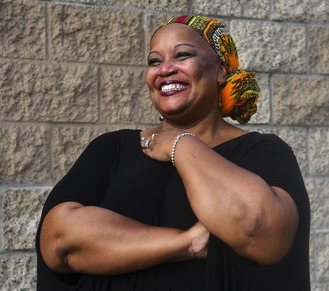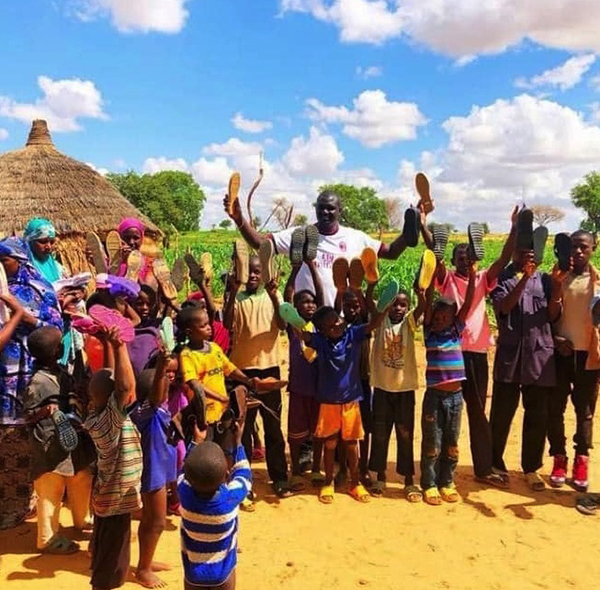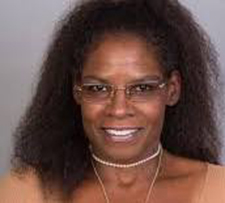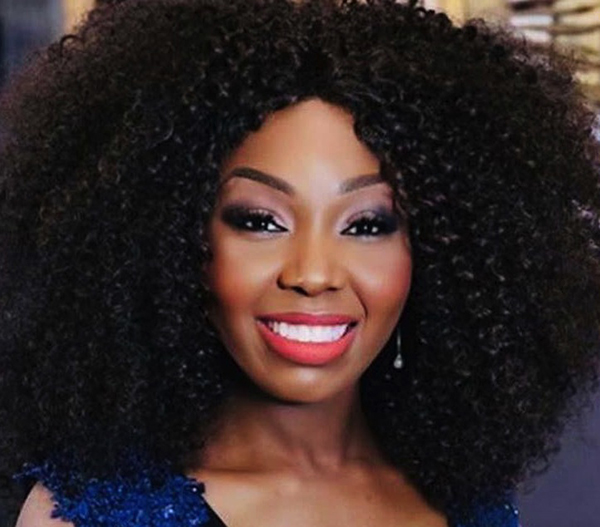By Darlene Donloe
Contributing Writer
Black women staying physically and mentally healthy is the focus of the California Black Women’s Health Project.
A statewide nonprofit, since 1994, the California Black Women’s Health Project has dedicated itself to improving the physical, spiritual, mental and emotional health of the state’s 1.2 million Black women and girls. As the only statewide nonprofit committed to improving California’s Black women and girls, they do so through education, policy, outreach and advocacy.
The California Black Women’s Health Project is an affiliate of the Black Women’s Health Imperative (formerly the National Black Women’s Health Project) based in Washington, D.C.
It was established to empower Black women to take personal responsibility for their own health and to advocate for changes in policies that adversely affect the health status of Black women.
Over the years, the organization has trained hundreds of Black women through customizable advocate training programs, including its sisters mentally mobilized initiative, to become mental health community advocates and to launch regional mental health-focused support groups called sister circles.
Sister circles are described as a space where Black women come together to heal, deal, share and nurture their spirits. Sister circles use music, imagery, poetry, videos, reading materials and a myriad of Black cultural traditions and practices to uplift, support and provide a caring environment.
The organization aims to reduce anxiety, stigma and isolation. Sister circles incorporate a learning component when coupled with the advocate training program.
Participants learn horizontal and vertical advocacy principles, policy practices and how to navigate systems of care, write letters to legislators, speak in public hearings and train others to build advocacy circles for other Black women in their communities.
Sonya Young Aadam, is the CEO of the Los Angeles–based California Black Women’s Health Project and is also its biggest cheerleader.
“I spent my life in the corporate arena and was not fulfilled,” said Aadam, who studied business at the Wharton School of the University of Pennsylvania. “I enjoyed the work, though.
“I lived outside L.A. for a while. Came home and the conditions that existed when I left were still present,” she said. “I needed to do something to uplift the community. I wanted to use my skills to give me more meaning. This was closer to my purpose of serving and supporting better lives for the people living around me.”
Aadam, a married mother of one, grew up in Inglewood and South L.A., and in both communities, she saw families still behind economically.
“I saw Black women raising children and working, causing them heavy burdens,” Aadam said. “I saw people suffering from mental illness. There is a lot of stress and a lack of investment in our communities. There is a lack of retail, housing and street maintenance.”
Aadam said she lived near an alley and saw conditions that made her shake her head.
“Where is the love,” she asked. “The community is left with the historical racism and systemic structural inequities. Our society wasn’t even planned to invest to help us improve our lives in the Black community.
“I also noticed a real serious displacement of Black people,” she added. “We can’t even identify ourselves geographically. South L.A. used to be 75% African American. It’s not that anymore. We are so spread out.”
When she took the job seven years ago, Aadam said she wanted to find an opportunity where her heart and soul intersected with her skills and experience.
“I wanted to be able to do what I do well for something I believe in and love dearly,” she said. “It was critically important to me. The organization had gone through some difficult transitions. I came in to bring my business and organizational skills to help rebuild the organization and to help continue a long legacy of service and care to Black women.”
Aadam said the organization “envisions a healthier future when Black women are empowered to make choices in an environment where health equity and justice are community priorities — and where Black labor is matched with adequate support, not with crumbs.”
When it comes to Black women receiving equitable health care, Aadam doesn’t think it will manifest any time soon.
“I don’t envision it happening in my lifetime because our society has not made that reconciliation,” she said. “We are not living in a country that, in fact, even California has not declared racism a health crisis. Our health conditions have under-resourced, structural, systemic issues. Racism is a key determinant to why we are dealing with poor health outcomes.”
California Black Women’s Health Project is part of a statewide coalition that issued a letter to the governor. It was signed by 156 organizations and 440 individuals. Aadam believes an executive order from the governor would open doors and funding opportunities.
In the meantime, Aadam said her organization is standing in the gap.
“We train women to be advocates so they, too, can stand in the gap,” she said. “We train them to navigate the systems and to go around it, kick the door down, and stand up for yourself. You have to go in armed and ready to advocate for the services you need.
“The system is broken in general. Look at our mental health system. Imagine a broken system trying to serve marginalized populations.”
Aadam also said it’s important to teach through advocacy.
“We teach women to never go to the doctor alone,” she said. “You don’t feel empowered when you are someplace like a doctor’s office sitting there with no clothes on. We teach and advocate for women to go in armed and ready with questions.
“Go in with a listening ear. Take someone with you, if you can. There is something called racial aggression. You’ve been gas-lighted.”
The organization also advocates for Black women to understand that their “voice counts.”
“Learn about your health and where you can get the best care,” Aadam said. “We all have to work together. Black women have not been heard or understood. We deal with stress before that — and then there is the added stress of not being heard.”
The organization also supports also backs Black birthworkers who support Black maternal and infant health and the lifeblood for creating positive birth outcomes for Black mothers, babies and families.
The organization’s toolkit is designed to empower and support Black birthworkers — midwives, doulas, maternal mental health peer specialists, lactation consultants, birth educators and breastfeeding counselors — engaged in maternal/reproductive justice work.
The organization strives to uplift and strengthen the capacity and impact of the Black birthworkers community via its sister circle model of engagement, capacity-building tools and collaboration.
While Aadam applauds her organization’s efforts, she recognizes that the need for such an organization in 2021 speaks volumes.
“What does it say about the world we live in?” she asked. “It says a lot. This is a nation built on racism and inequity. It could take another 100 years to deplete that from our society. It has to be done. We are better today than we were 100 years ago.”
Aadam said what’s needed is new training in the medical community and for the community to come together.
“We need a community trusted organization like ours to work alongside the health systems in the world,” she said.
With all the issues surrounding Black women and the health care system, Aadam remains neutral about the future.
“I’m encouraged because I believe so much in collaboration and collective engagement,” she said. “If we empower people and work together, we can hold the levy and keep the flood from washing us out. I’m not an optimist or a pessimist. I believe in continuing to press toward a good thing.
“This organization is as relevant today as it was 30 years ago. We reflect the voices of Black women in this state and represent our sisters and families and advocate for the change necessary and the care that our health system says they are supposed to provide.”
“Making a Difference” is a weekly feature profiling organizations that are serving their communities. To propose a “Making a Difference” profile, send an email to newsroom@wavepublication.com.
Darlene Donloe is a freelance reporter for Wave Newspapers who covers South Los Angeles. She can be reached at ddonloe@gmail.com.












